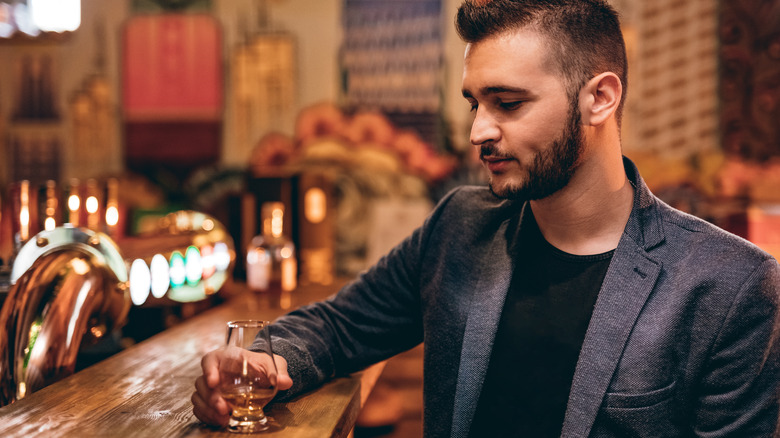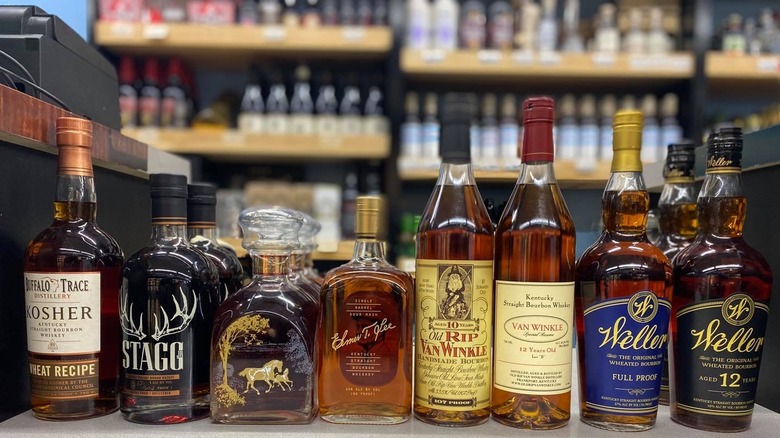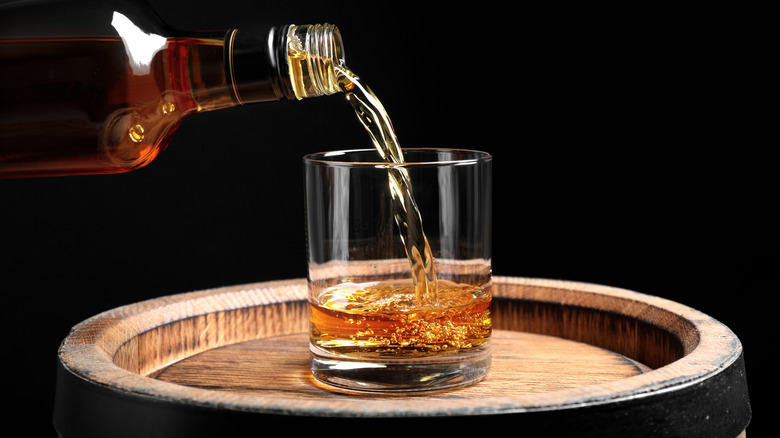What Allocated Bourbon Really Means
Allocated bourbon refers to brands of the iconic American spirit that are provided to retailers by their distributors in restricted or very limited quantities.
That's the definition, but what it means to consumers is often something different. Although not technically a quality descriptor, allocated bourbon is generally assumed by connoisseurs and enthusiastic bourbon buyers to be either rare or of exceptional quality. Sometimes that's true. Many high-end and collectible bourbons are only available via allocation. Pappy Van Winkle is among the most notable examples. Due to its limited production and enormous demand, retail outlets typically are allocated few if any bottles. As a consequence, the few that are available usually are in stores for a very short time and are often sold via lottery or waitlist, or earmarked for valued customers.
Based on brand production, the number of bottles or cases allocated to a given retailer can shift from year to year. If Pappy Van Winkle releases a higher-than-normal amount of bottles — which was the case in 2022, for example — distributors can allocate more to their retail clients.
Are allocated bottles always more expensive?
Allocated bourbon isn't necessarily always more expensive, but generally speaking, that's the case. This is in part because allocations are typically reserved for high-quality, and collectible bourbons are naturally going to be more expensive. But yes, sometimes retailers do mark up prices for allocated bourbons above the suggested retail price based on demand.
Bourbon, it should be noted, isn't the only spirit to be sold by allocation. Some scotch, Irish, and Japanese whisky brands, for example, are also sold this way. However, the surging demand for premium bourbon, along with bourbon's often lengthy aging process — which makes it hard for producers to adjust for demand – has contributed to bourbon being allocated more than other liquors.
"A lot of brands that used to be relatively easy to buy are now on allocation," notes market analyst Brandy Rand via BevAlc Insights. "This is due to both supply issues as well as consumer demand for popular brands that have a reputation for quality and value. Consumers are more educated on the bourbon category and are looking to explore across the brands they know as well as to discover new brands."
How consumers can buy allocated bourbon
Because allocated bourbon is usually found in such limited quantities, it's often not readily available on store shelves. So how do you get your hands on these bottles? That's the question bourbon enthusiasts are forever trying to answer. Sometimes stores will have lotteries for particularly desirable brands or labels. But more often, it's up to the consumer to locate stores most likely to have allocated bottles (typically, chain stores get more than independent ones), and gain status as a valued customer to be given access to buy these hard-to-get bourbons.
Building relationships at your local liquor outlet is an important part of the process so that you'll know when your allocated bourbon brand of choice will arrive (most distillers and distributors release allocated bourbons during the last three months of the year), and be able to get on a waiting list ahead of time if one is available. Sometimes, however, these bottles will be placed on shelves for however long it takes them to sell out.
But not all retail stores are this democratic. Some will hold back allocated bourbons for their best customers, so if you want a chance to buy bottles, it's up to you to become one of their best customers.



